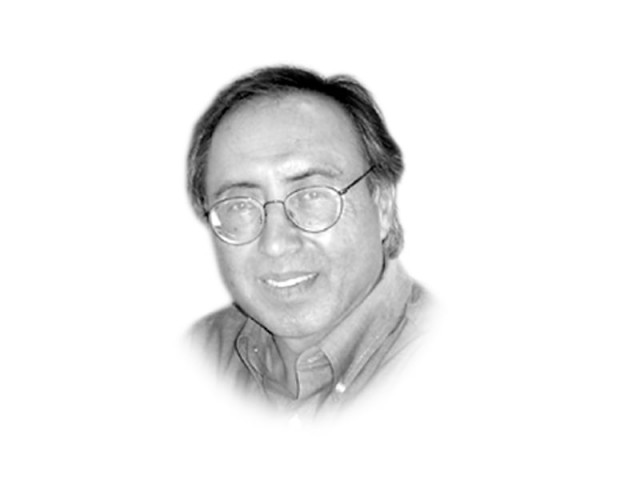The challenge of primary education
We need to have a robust and modern curriculum design developed by the best educationists in the country

The writer is a professor of political science at the Lahore University of Management Sciences. He has also worked for the Institute of Strategic Studies, Islamabad
With this comment on the importance of primary education, I wish to explain which types of ideas have guided primary educational planning in industrial societies. Most of these ideas that I am going to mention have universal importance, across different cultures, national boundaries and civilisations. These ideas are essentially about how to develop a human mind and embed it with values of personal success and a stronger society with a sense of community and solidarity, which are all applicable to Pakistan.
First of all, primary education has to be enjoyable for children. Learning for children can come from playing and doing things that create natural interest among them. What will attract a child to learning has been a subject of research for child psychologists, educational philosophers, curriculum designers and authors of children books around the world. The common thread among all of them is how to get the child’s attention and get her or him involved in learning. One of the methods that has been proposed and which is religiously followed in progressive schooling is interactive instruction. The teacher, more than an instructor, is a facilitator and a guide to students. This lets students think for themselves, as they try finding solutions on their own rather than expecting a perfect answer from the instructor. The instructor may lead them to what might be the right answer but before doing that, he lets students try, make mistakes and get there without his or her help.
Second, primary education is activity-oriented — children must learn by doing things on their own. Education is not about spoon-feeding but cultivating a thinking process. Third, education at this determining stage and even at the higher levels, is not about textbooks, no matter how good they are. At best, the texts are a guide or a launching pad to further tread the path of learning or move on intellectual trajectories. Supplemental readings, prepared according to the age of the child with attractive cultural symbols of the country — folklore, festivals, historic personalities and national events — sets children on a learning path of their own, with intellectual ease and deep interest. In this respect, there is much in the philosophy of education and curriculum design that a country like Pakistan can adopt in order to structure its primary level education.
Finally, from the very start, children must be given the confidence to raise questions. This is the best way to acquire knowledge at any stage in life. If children become confident in themselves, they can acquire the habit of countering authority, which at this stage, is the teacher. This quality is further developed with educational trips, after-school clubs, sports and group discussion sessions.
What I have attempted to sketch is not an ideal template but is based on observation of the public education system in some parts of the developed world. My idea of bringing these points here is that if these countries can implement such a model of primary education, we can also do it. Compared with what these countries have done, where do we stand in Pakistan and what is the way out? Unfortunately, education in general, and primary education especially, have never been a major concern of those in authority. The public school system at the primary level is dysfunctional for three reasons. First, the teachers assigned to teach foundational education are not as well trained as they should be. Second, they don’t seem to show an interest in the development of the child or take their profession as a very serious and fundamental component of nation-building. The dropout rate at this level is high, and one of the reasons for this is that teachers end up driving away children from learning instead of attracting them towards it. Finally, there seems to be no efficient system of retraining or accountability of public school teachers, although hopefully, this could change in the future. There are exceptions of self-motivated and conscientious teachers still out there and doing their bit to keep the system going.
The way out of the current state of affairs at the primary level is by restructuring the school system. The first step must be to devolve schools from the provincial and district education bureaucracy to the school itself. Teachers must be hired by the school, serve in the same school and retire from there. Second, some basic national standards must be established for hiring primary schoolteachers. Each province must follow them — provincial autonomy in education doesn’t mean a licence to play with the lives of poor families and most importantly, with the lives of children. Finally, we need to have a robust and modern curriculum design developed by the best educationists in the country. This must not be left to bureaucracies of the textbook boards. The issue is of ownership of the public education system and its complete overhaul and continuous reforms and availability of best human and material resources. There is a long road ahead, but this journey must begin now. It is never too late to devote to the primary national task of primary education.
Published in The Express Tribune, March 28th, 2015.
Like Opinion & Editorial on Facebook, follow @ETOpEd on Twitter to receive all updates on all our daily pieces.















COMMENTS
Comments are moderated and generally will be posted if they are on-topic and not abusive.
For more information, please see our Comments FAQ